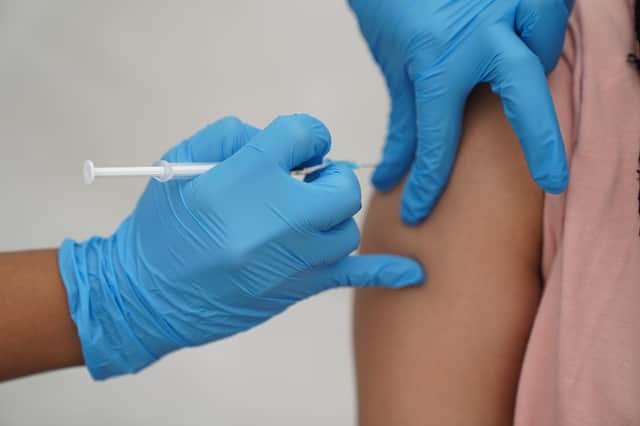JN.1: What are the symptoms of the new Covid variant and how dangerous is it?


A new Covid variant has arrived on the scene - just in time for Christmas.
With continued hospitalisations due to Covid-19, global health authorities have been closely monitoring the emergence of a new named JN.1, sparking concerns about its potency. The JN.1 variant, also known as the "Juno Variant," was first identified through genomic surveillance, raising alarms due to its unique genetic makeup. Health experts suggest that the variant may possess certain mutations that could affect transmissibility and potentially impact the severity of the disease.
Advertisement
Hide AdAdvertisement
Hide AdHere are some of the symptoms to look out for, as well as more information on how dangerous this new variant is.
Key symptoms
Initial reports on the JN.1 variant indicate a set of symptoms that overlap with those of the original SARS-CoV-2 virus, albeit with some distinctive features. Common symptoms include fever, cough, and shortness of breath, which are consistent with previous variants. However, some individuals infected with JN.1 have reported experiencing a higher incidence of gastrointestinal symptoms, such as nausea, vomiting, and diarrhea.
One notable characteristic of the JN.1 variant is an increased prevalence of headaches and muscle aches compared to earlier strains. Health officials emphasize the importance of recognizing these subtle differences in symptoms to enhance early detection and isolation efforts.
Transmissibility and severity
Preliminary data suggests that the JN.1 variant may have a higher level of transmissibility, making it easier to spread within communities. This heightened transmissibility could lead to a more rapid increase in cases, potentially straining healthcare systems.
Advertisement
Hide AdAdvertisement
Hide AdConcerns about the variant's impact on disease severity are still under investigation. While some studies indicate that JN.1 may cause milder illness in some cases, the full spectrum of its effects remains uncertain. Researchers are working diligently to assess whether the variant poses an increased risk of severe outcomes, such as hospitalisation and death.
What is being done about it?
As the global community grapples with the emergence of the JN.1 variant, health authorities stress the importance of adhering to preventive measures. Vaccination remains a critical tool in the fight against all Covid-19 variants, including JN.1. Booster shots are being recommended for those eligible to enhance immunity and reduce the risk of severe illness.
In addition to vaccination, experts advise the continued practice of public health measures, such as wearing masks in crowded or indoor settings, practicing good hand hygiene, and maintaining social distancing when possible. Early detection through widespread testing and prompt isolation of confirmed cases is crucial to containing the spread of the JN.1 variant.
As the situation evolves, researchers and public health officials are closely monitoring the JN.1 variant to better understand its implications and develop targeted strategies to mitigate its impact on global health.
Comment Guidelines
National World encourages reader discussion on our stories. User feedback, insights and back-and-forth exchanges add a rich layer of context to reporting. Please review our Community Guidelines before commenting.
